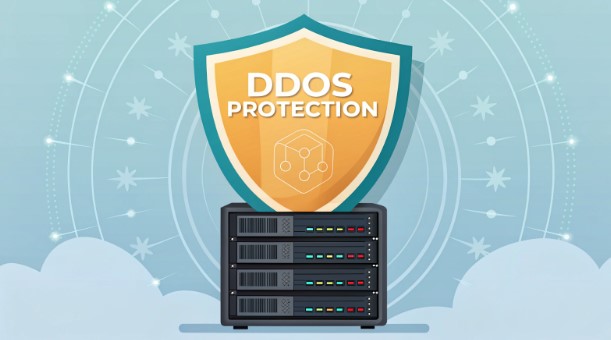Advanced DDoS Protection Strategies for US Hosting Services

The Rising Threat of DDoS Attacks in US Hosting Industry
In the ever-evolving landscape of cybersecurity, US hosting providers face increasingly sophisticated DDoS (Distributed Denial of Service) attacks. Recent data from cybersecurity firms indicates a 300% surge in DDoS attacks targeting hosting infrastructure in 2024, with attack volumes reaching unprecedented peaks of 2.5 Tbps. These statistics underscore the critical need for robust DDoS protection strategies in the hosting industry.
Understanding Modern DDoS Attack Vectors
Modern DDoS attacks have evolved beyond simple volumetric floods. Today’s threat actors employ multi-vector attacks combining volumetric, protocol, and application layer assaults. Particularly concerning is the rise of IoT-powered botnets, capable of generating massive traffic surges that can overwhelm traditional defense mechanisms. Understanding these attack vectors is crucial for implementing effective countermeasures.
Technical Deep Dive: Advanced Protection Mechanisms
Leading US hosting providers implement multi-layered defense strategies leveraging advanced technologies:
– Intelligent Traffic Analysis: Utilizing machine learning algorithms to differentiate legitimate traffic from attack patterns
– BGP Anycast: Distributing attack traffic across multiple data centers
– Layer 7 Application Protection: Implementing sophisticated WAF rules
– Hardware-accelerated DDoS Mitigation: Employing FPGA-based filtering
– Advanced Rate Limiting: Dynamic adjustment based on traffic patterns
Infrastructure Optimization for DDoS Resilience
Hosting providers are adopting sophisticated infrastructure designs incorporating:
– Distributed Edge Networks: Positioning scrubbing centers strategically
– Over-provisioned Network Capacity: Maintaining 3x typical bandwidth requirements
– Redundant DNS Infrastructure: Implementing anycast DNS services
– Load Balancing: Advanced distribution algorithms for traffic management
– Automated Failover Systems: Near-instantaneous traffic rerouting capabilities
Real-time Monitoring and Response Systems
Enterprise-grade monitoring solutions form the backbone of effective DDoS protection:
– Network Telemetry: Continuous traffic pattern analysis
– Anomaly Detection: AI-powered early warning systems
– Automated Response Protocols: Instant mitigation activation
– Traffic Visualization: Real-time attack vector identification
– Performance Metrics: Continuous service availability monitoring
Case Study: Mitigating a 2.3 Tbps Attack
A recent incident involving a major US hosting provider demonstrates the effectiveness of modern protection strategies. When faced with a massive 2.3 Tbps attack, their multi-layered defense system:
– Detected the attack within 3 seconds
– Activated distributed scrubbing centers
– Maintained service availability for 99.9% of customers
– Mitigated the attack completely within 15 minutes
– Generated detailed attack analytics for future prevention
Cost-Effective Protection Strategies
Implementing comprehensive DDoS protection doesn’t necessarily require enormous budgets. Strategic approaches include:
– Tiered Protection Plans: Scalable solutions based on needs
– Cloud-Based Mitigation: Pay-as-you-go models
– Hybrid Protection: Combining on-premise and cloud solutions
– Managed Security Services: Expert-led protection
– Resource Optimization: Intelligent resource allocation
Future-Proofing DDoS Protection
The evolution of DDoS protection continues with emerging technologies:
– Quantum-resistant encryption protocols
– AI-driven predictive defense systems
– Blockchain-based traffic validation
– Edge computing security enhancement
– Zero-trust architecture implementation
Implementation Guidelines for Hosting Providers
To maximize protection effectiveness, hosting providers should:
– Conduct regular security audits
– Implement continuous staff training
– Maintain updated incident response plans
– Deploy regular penetration testing
– Establish vendor partnerships for enhanced protection
As DDoS attacks continue to evolve, US hosting providers must maintain vigilance in implementing and updating their protection strategies. The combination of advanced technology, skilled personnel, and robust infrastructure forms the foundation of effective DDoS protection in today’s digital landscape.

